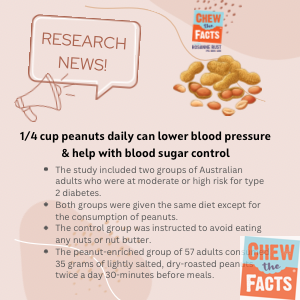The upcoming of meals technology: Shopper values and a healthier foodstuff technique
Inspite of their appreciation for all thing new and fewer processed, People have a lengthy and historic romance with packaged food items, foods science and engineering which, considering that the change of the 20th century, have with each other played a critical job in foodstuff tradition in phrases of guarding and boosting consumers’ lives. Many of the earliest technological developments are now entirely taken for granted: pasteurization of milk, for case in point, arrived about in the early 1900’s, and products like Kraft Singles, which prolonged the refrigerated storage everyday living of cheese, arrived to marketplace just just after Entire world War II.
Other social, economic and cultural positive aspects have been derived from advances in meals science and know-how, ranging from optimistic influences on public well being, enhanced foodstuff stability, improved convenience, flavor and texture as nicely as reduced food and beverage prices for both equally shoppers and manufacturers. And nonetheless, when we feel of developments in meals technologies right now and measure them along with present-day food stuff values, we see a much more sophisticated photograph arise: Even during the present-day pandemic, consumers are employing a various set of lenses to consider meals and drinks, between which includes factors of overall health, wellness, sustainability and social justice.
One fast growing sector of meals and drinks that relate to these topics centers on alternative proteins (like “plant-based”), quite a few of which end result from advances in processing driven by meals technology. In addition to values relating to sustainability and wellness, client need for plant-primarily based options has also been boosted by pandemic-driven functions and headlines, which includes animal protein shortages in foodstuff retail and maybe the most emotionally billed subject matter of all, the overall health and basic safety of staff operating in America’s meat and poultry packing plants.
To see what buyers had been thinking about emerging protein concepts we examined the topic in our Foodstuff & Technologies 2019: From Plant-Primarily based to Lab-Grown report, which analyzed their reactions to 4 rising protein principles such as: AquAdvantage salmon (genetically modified, more rapidly-increasing salmon), mobile dairy (milk made with out cows, by way of fermentation), cellular meat (meat designed without having animals, grown in a lab) and cricket protein (treats manufactured with insect protein).
In general, we located that consumers had robust reactions to these progressive proteins, with few expressing neutral opinions. In fact, how consumers consider about impressive food items is influenced by no matter whether they think of them very first and foremost as an improvements of the manufacturing facility, the industry, the laboratory, or the kitchen, every carrying its individual established of meanings and connotations. Area and kitchen area food stuff improvements tend to be the the very least problematic, followed by people relating to manufacturing facility and laboratory configurations.
Lab-primarily based innovations have a tendency to be related with the most profound and tough food changes. Even even though disruptive innovations like cellular and insect proteins seem to be logical extensions of consumers’ wish for ethical, nutritious, and tasty protein items, people see very little overlap amongst these tips and the present earth of meat or dairy choices.
When judging meals improvements like these protein concepts, people are likely to assess the acceptability of scientific and technological innovations on a situation-by-case foundation, weighing up not just “rational” risks and benefits but more culturally driven criteria like the motivations of the producer, the amount of transparency they exhibit, the quantity of management they experience they have about the solution, and finally, how tolerable it feels.
AquAdvantage salmon was the most interesting concept all round, even with the reality that some buyers felt strongly that this notion crossed ethical lines into “playing God” for the reason that of connections to genetic engineering.
Equally, inspite of the actuality that shoppers usually did not see several “real” complications with insect protein, this thought clearly was not interesting to quite a few people, overriding all other issues. Notably, all those shoppers that buy plant-based proteins or are early adopters of foods and technological innovation improvements were additional very likely to see the particular, ethical, and environmental added benefits of innovative protein ideas.
Our current analysis carries on to see that even for the duration of the pandemic, usage of dairy and meat solutions has come to be portion of a mainstream narrative of what it suggests to “eat better” (for on their own, their communities and the environment). Innovators in foods science and technology ought to consider how to situation their goods in terms of the dominant narratives of what “positive progress” seems like in food society right now, a great deal of which facilities on a mixture of reconnecting to a all-natural previous and pleasure for the foreseeable future.
Meat and dairy options protect a broad spectrum of production tactics, ranging from plant-dependent to lab-developed. Understanding how these types match into these frameworks of being familiar with will be critical to knowledge their trajectory and the trajectory of the American diet plan and food stuff lifestyle as a entire.
Heading ahead, US food items culture is becoming ever more focused on incorporating culinary (and cultural) variety, sustainability and wellness into their lifestyle, factors of which contain making an attempt strategies of ingesting that shift further than the normal tropes of the American food plan (e.g., meat, starch, and a vegetable). This is driving them to seek out out new means to take in, such as past meat and dairy. Nonetheless, they also want to achieve culinary and cultural range with out likely far too far outside of their ease and comfort zone, talent set, or means to prioritize time for foodstuff preparation.
Related stories:
As CEO of The Hartman Team, Demeritt drives the vision, method, functions and outcomes-oriented society for the firm’s associates as The Hartman Team furthers its choices of tactical imagining, purchaser and industry intelligence, cultural competency and progressive intellectual funds to a international market.
_____________________________________
If you relished this report, you can sign up for Client Brands SmartBrief or FMI dailyLead to get news like this in your inbox. For even a lot more excellent news articles, sign up for any of SmartBrief’s 275+ free e mail newsletters today, totally free.
") })}







